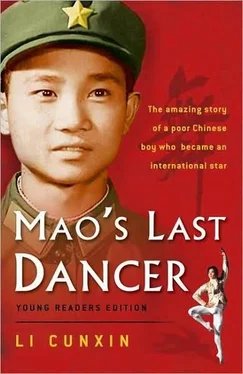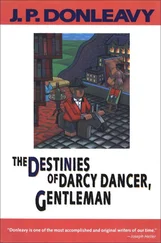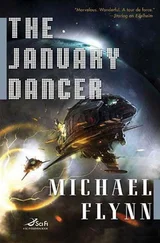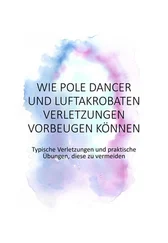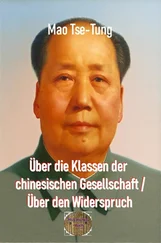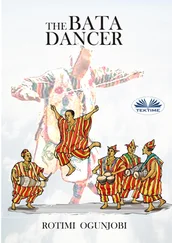That was the first time I ever saw my niang ill. She couldn't get out of bed for nearly a week. The "barefoot doctor" in our village gave her a dozen different kinds of medicine and she had to take a handful three times a day with warm water. We were always told to take medicine with warm water. The barefoot doctor was one of Mao's inventions, a product of the Cultural Revolution. They were supposed to live among the peasants, live like peasants. Their precious shoes wouldn't be useful in the muddy fields, so they were known as barefoot doctors. By the early 1970's, facing a severe shortage of doctors and nurses in the countryside, Mao ordered clinics and hospitals to train as many people as possible and send them to the countryside. He criticised the medical profession for avoiding the communes and refusing to share the experience of the peasants' lives. Many people were rushed through a short training course. They read The Barefoot Doctor's Manual and were declared qualified doctors.
But despite the barefoot doctor's medicine, my niang's fever wouldn't recede, and she kept having dizzy spells. Her lips became covered with white blisters, she lost weight and her eyes sank deep under her brows. I often placed my hands onto the frosted window and then onto my niang's burning forehead to help cool her down.
That week, my dia had to cook, wash, clean and get my brothers ready for school. He didn't have a minute to himself. He rose very early to cook us breakfast and rushed home to see my niang and cook us lunch. Dinner was always late since he had to finish his day's quota before he could come home. My dia's cooking was basic and often flavourless, but nobody complained. We knew how serious my niang's illness was and how hard it was for my dia. I was so frightened that my niang might die. "Look after your dia if I don't make it," she said. "Maybe I will die young, just like my mother."
Everyone in the family, all the way down to five-year-old Jing Tring, was expected to pull his weight. My niang was so worried that my dia might get sick from overworking: we would not survive if he got sick. He was the breadwinner, the rock and spine of our family. But he never showed any signs of frustration or fatigue. He spoke even fewer words than usual that week. He just worked and worked and worked.
We had no money to take my niang to the hospital, and the medicine from the barefoot doctor was cheap and ineffective. So my dia chopped huge amounts of ginger and garlic into tiny pieces, boiled them in the wok with some sugar borrowed from my fourth aunt, and gave it to my niang. She drank massive amounts of this steaming hot mixture and immediately covered herself from head to toe with layer upon layer of thick cotton quilts to make herself sweat. Then Cunfar and I were sent to the big grain grinder about five minutes away in the eastern section of our village to grind some wheat to make her some noodle soup as a treat. The grain grinder was a round platform pieced together from several thick granite stones. On top was a huge heavy stone ball with a hole in the middle and a strong bamboo stick through it. A person on each side would push the stone ball around to crush the wheat. My brother and I pushed the ball in a circle until the wheat was finely crushed, and when we returned with the bowl of cracked wheat, my dia used a fine wire sieve, which he'd made himself, to separate the flour from the cracked wheat shells. He mixed the flour with some water and rolled it into a thin pancake, then patiently folded it into many layers. Then he cut the pancake into noodles with a big cleaver. He even used a few drops of my niang's precious oil-and two eggs! But my niang noticed immediately that the colour of the soup was rather strange and after the first taste she asked my dia, "Have we run out of salt and soy sauce?" At first my dia didn't understand, then all of a sudden he realised he'd forgotten the most important ingredients. They burst into laughter. Even in sickness my niang had a sharp sense of humour, and a brilliant, contagious laugh.
It was wonderful to hear my parents laugh again. Niang called Jing Tring and me over. "Help me eat some of these noodles. Your dia has made too much." We all knew that she'd hardly eaten anything the entire week. We all knew she could have eaten twice as much as our dia had made. "Get out of here!" our dia said. "Your niang will never eat her noodles in peace while you're here." Our niang protested, but our dia gently pushed us out of the room and forced her to finish her soup.
Over the next few weeks, my niang gradually recovered, but we never found out what she'd had, though exhaustion and starvation were the likely causes. Her health was never quite the same, and she suffered from dizzy spells ever after. My dia wanted my niang to stop working in the fields, but in her usual strong way she argued back. "We can't afford for me to stay home! Your wage is not enough for all of us to survive."
"If we only have water to drink," he said to her, "it would still be better than you working yourself to death. Our family could never survive without you, either."
But the reality was that our family couldn't live on my dia's wage alone. He eventually agreed to my niang working in the fields only part time, to ensure our survival.
Every day except Sundays, my dia would ride his old bike to work in the town of Laoshan. It was a good half-hour away. He paid someone in the flea market ten yuan for that beloved second-hand bike. It needed a lot of fixing before he could ride it, but he was a resourceful handyman and could fix anything. It was so precious to him that we were never allowed even to touch it. He had to carry all kinds of heavy materials-huge grain sacks, big pieces of stone-as part of his job. He was the tallest and strongest among the crew of five, so he was called upon to carry the heaviest materials. He was also the driver's right-hand man: when the truck had to reverse he would guide the driver, sitting alongside. I was very proud of him. A truck was impressive-most transport was still done by horse and cart in the communes. His job was also considered one of the better-paid jobs in the county and many people were envious of him. He was paid thirty-five yuan per month, almost US $4.20 then! I wished that I could be a truck driver one day, but I knew at the bottom of my heart that my destiny lay in the fields as a labourer, like hundreds of millions of others.
It was often well after seven in the evening before our dia came home in those days. He would be worn out, and my niang often had to massage him at night to prepare him for the next day. As long as I could remember, he never missed one single day's work, even when he didn't feel well.
Apart from my dia's few brief days with a teacher, my parents never went to school when they were children, so they could not read to us. But night-time was still story-time, and our dia would tell us his stories and fables, always simple and basic, but we constantly begged him for them and we always listened eagerly.
My brothers also played their own version of I-spy. One of them would select a word from the newspapers glued all over the walls and ceiling, and whoever spotted this word first would have a turn to select the next. Sometimes we would not find the word for days. Later, once I'd learnt to read a little, one of my words held the record for the longest time it took to find. We always thought it was sad that our parents couldn't join in because they couldn't read.
One year, a friend of our dia's who worked in a Qingdao printing factory gave us some Deer cigarette labels. They were green and we used them as wallpaper for the ceiling. Our dia could not afford cigarettes. Instead he smoked a wooden pipe and cheap tobacco, but he often joked to his friends that he had the luxury of enjoying Deer cigarettes every day because of the labels on our ceiling.
Читать дальше
